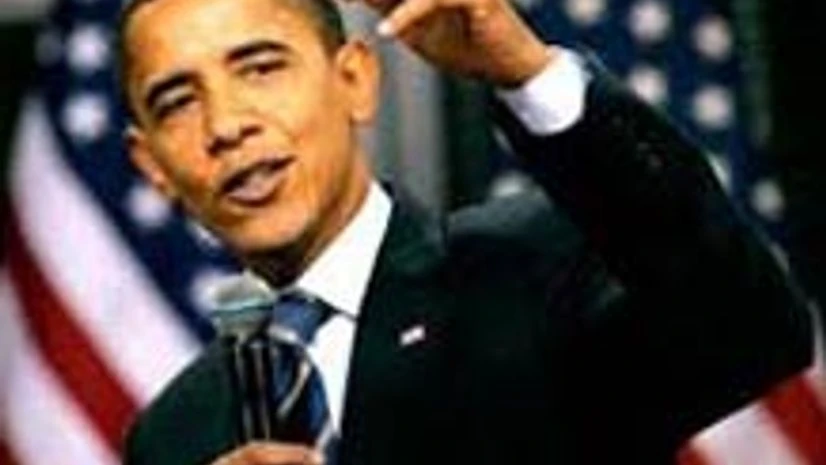In his victory speech on Wednesday, US President Barack Obama said he re-election was a result of a hard-fought campaigning. No doubt. But what awaits him in 2.0, as the media calls his second term, is going to be fraught with tough choices.
In most of his election speeches, Obama laid more stress on where his opponent, Mitt Romney, was wrong rather than telling his country how he intended to utilise the next four years if he returned to power. The budget constraints, which practially defined his pervious term, did not figure in his speeches. Well, why blame him? A trillion dollar deficit can make any head of state, howsoever eloquent or dashing he or she might be, squirm and develop an attitude often found in an ostrich.
So, now that he is back in power, is the ride going to be easy for him? No. The key reason: Republicans, who still control the House, are raring to stonewall his moves. Hence, it is possible that most of the time Obama will be able to do nothing more than just watch the big elephant (deficit) in the room do belly dance. Because Republicans won't let him control the fiscal monster by introducing new taxes; they would prefer spending cuts.
In short, if he wants to have a good sleep at night, he will have to walk along with Republicans — even if he does not like it — and operate virtually in the way many coalition governments operate in many parts of the world, including India.
Here are the 3 big issues the new President is going to face at home:
Fiscal Cliff: Come January 2, tax cuts (2001-2010) are expiring, which will affect various programmes of the government. Natually, spendings will have to be cut and taxes will have to be hiked. What can Obama do in such a scenario? He can force Congress to allow tax cuts to continue. This, in turn, will delay the spending cuts until 2013.
How serious fiscal cliff is could be gathered from what Thomas Kenny, a professional financial writer, has to say: "The oncoming fiscal cliff is a concern for investors since the highly partisan nature of the current political environment could make a compromise difficult to reach. This problem isn’t new, after all: lawmakers have had three years to address this issue, but Congress – mired in political gridlock – has largely put off the search for a solution rather than seeking to solve the problem directly."
Time for new tax cut? Obama has promised to extend most of the tax sops, except for those above a certain income level. Incidentally, this is the reason why Wall Street hates him so much and was rooting for Mitt Romney. That explains the 2% slide on Wall Street the day after his re-election. It remains to be seen whether the President will replace the 2010 tax cut with some other reduction programme. Additionally, Obama has proposed raising taxes on households earning more than £150,000 a year but faces oppostition from Republicans. (Read more http://bonds.about.com/od/Issues-in-the-News/a/What-Is-The-Fiscal-Cliff.htm)
Matters of health: One of the biggest tasks Obama faces is to convince all states to extend health coverage to several uninsured Americans by 2014. Besides, the President has promised to keep the medicare going for existing beneficiaries. The Republicans, still licking their wounds, will try their best to slow the growth of the government-run medical programmes. Hence, this one is not going to be easy either for the President.
3 big issues at home Obama can't ignore
Going will be tough for the new President because Republicans are raring to stonewall most of his moves
)
Topics : Barack Obama
Don't miss the most important news and views of the day. Get them on our Telegram channel
First Published: Nov 08 2012 | 5:53 PM IST

